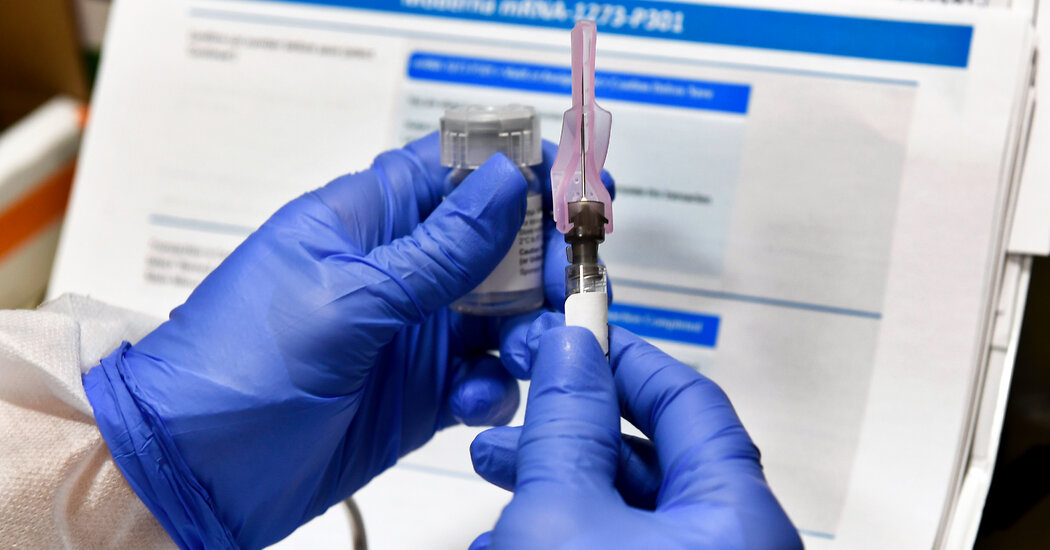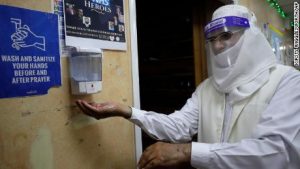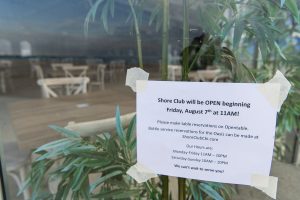Monkeys given the Moderna coronavirus vaccine and then deliberately infected were able to fight off the virus, quickly clearing it from their lungs, researchers reported on Tuesday.
The findings do not guarantee that the vaccine will perform the same way in people, but the results are considered encouraging and a milestone in the struggle against the pandemic. If an experimental vaccine fails in monkeys, that is generally seen as a bad sign for its ability to work in humans. This type of study is considered valuable because infecting people on purpose, though sometimes done, is not standard practice.
On Monday clinics around the country began a Phase 3 trial of the vaccine candidate from Moderna, a biotech company based in Massachusetts, with the aim of enrolling 30,000 people to test for safety and effectiveness.
“The virus was cleared very rapidly in the vaccinated animals,” said Dr. Barney S. Graham, the senior author of a report in The New England Journal of Medicine, and the deputy director of the Vaccine Research Center at the National Institute of Allergy and Infectious Diseases. Dr. Graham’s scientific team collaborated with Moderna to develop the vaccine.
Unvaccinated animals in the control group did not quickly get rid of the virus.
The vaccine uses a synthetic form of genetic material from the coronavirus, called messenger RNA or mRNA, wrapped in tiny particles of fat that helps it enter human cells. Then, the mRNA prompts the cells to make a fragment of the virus, which primes the immune system to attack if it encounters the real coronavirus.
The study involved 24 Rhesus macaques: eight controls, eight given a low dose of vaccine and eight given a high dose. Each animal received two shots, four weeks apart. A month after the second shot, researchers dripped the coronavirus into their noses, an amount comparable to that found in the airways of infected people. This type of monkey does not become very ill from the coronavirus, but does become infected.
Latest Updates: The Coronavirus Outbreak
The vaccine did not completely prevent infection, but kept the virus from propagating greatly. The vaccinated animals still had some virus in their noses, but significantly less than unvaccinated animals did.
“If you get a little infection that is cleared rapidly and doesn’t shed very long, it reduces the likelihood of transmission,” Dr. Graham said.
Lab tests also found that the vaccine stimulated strong immune responses, including high levels of antibodies capable of neutralizing the virus — more than found in people who had recovered from the infection.
The lab results were comparable to those seen in people in early tests of the vaccine.
“This bodes well for the Phase 3 trials,” said Dr. Angela Rasmussen, a virologist at Columbia University who was not involved in the study. “It’s still hard to make predictions on what it’s going to do in a huge, diverse group of people, based on monkeys, but it’s reassuring that it provides protection in this model. Overall, my verdict is ‘promising but preliminary.’ ”
The Coronavirus Outbreak ›
Frequently Asked Questions
Updated August 4, 2020
-
I have antibodies. Am I now immune?
- As of right now, that seems likely, for at least several months. There have been frightening accounts of people suffering what seems to be a second bout of Covid-19. But experts say these patients may have a drawn-out course of infection, with the virus taking a slow toll weeks to months after initial exposure. People infected with the coronavirus typically produce immune molecules called antibodies, which are protective proteins made in response to an infection. These antibodies may last in the body only two to three months, which may seem worrisome, but that’s perfectly normal after an acute infection subsides, said Dr. Michael Mina, an immunologist at Harvard University. It may be possible to get the coronavirus again, but it’s highly unlikely that it would be possible in a short window of time from initial infection or make people sicker the second time.
-
I’m a small-business owner. Can I get relief?
- The stimulus bills enacted in March offer help for the millions of American small businesses. Those eligible for aid are businesses and nonprofit organizations with fewer than 500 workers, including sole proprietorships, independent contractors and freelancers. Some larger companies in some industries are also eligible. The help being offered, which is being managed by the Small Business Administration, includes the Paycheck Protection Program and the Economic Injury Disaster Loan program. But lots of folks have not yet seen payouts. Even those who have received help are confused: The rules are draconian, and some are stuck sitting on money they don’t know how to use. Many small-business owners are getting less than they expected or not hearing anything at all.
-
What are my rights if I am worried about going back to work?
- Employers have to provide a safe workplace with policies that protect everyone equally. And if one of your co-workers tests positive for the coronavirus, the C.D.C. has said that employers should tell their employees — without giving you the sick employee’s name — that they may have been exposed to the virus.
-
Should I refinance my mortgage?
- It could be a good idea, because mortgage rates have never been lower. Refinancing requests have pushed mortgage applications to some of the highest levels since 2008, so be prepared to get in line. But defaults are also up, so if you’re thinking about buying a home, be aware that some lenders have tightened their standards.
-
What is school going to look like in September?
- It is unlikely that many schools will return to a normal schedule this fall, requiring the grind of online learning, makeshift child care and stunted workdays to continue. California’s two largest public school districts — Los Angeles and San Diego — said on July 13, that instruction will be remote-only in the fall, citing concerns that surging coronavirus infections in their areas pose too dire a risk for students and teachers. Together, the two districts enroll some 825,000 students. They are the largest in the country so far to abandon plans for even a partial physical return to classrooms when they reopen in August. For other districts, the solution won’t be an all-or-nothing approach. Many systems, including the nation’s largest, New York City, are devising hybrid plans that involve spending some days in classrooms and other days online. There’s no national policy on this yet, so check with your municipal school system regularly to see what is happening in your community.
Dr. Rasmussen said that even if a vaccine does not completely prevent infection, but makes the illness less severe and cuts the risk of death, it is still a valuable public health measure.
Another outside expert, Dr. Paul Offit, an infectious disease expert at the University of Pennsylvania and Children’s Hospital of Philadelphia, said: “It’s always encouraging when things work in nonhuman primates, but nonhuman primates aren’t humans. We really only learn about these products when they’re put in humans.”
Dr. Graham said, “I think we have a chance of having some protection from this vaccine, but we have to do the Phase 3 trial to find out.”
He said the study could also help establish guidelines for evaluating this type of research on other vaccines.
“It kind of puts a stake in the ground for what kind of things might be needed to see this level of protection in a nonhuman primate,” Dr. Graham said. “We don’t know how it will relate to Phase 3. We’ll find out as data builds from this product and others. We’ll develop a more clear picture of which vaccines work and maybe why they work. But we really need the human data.”



















